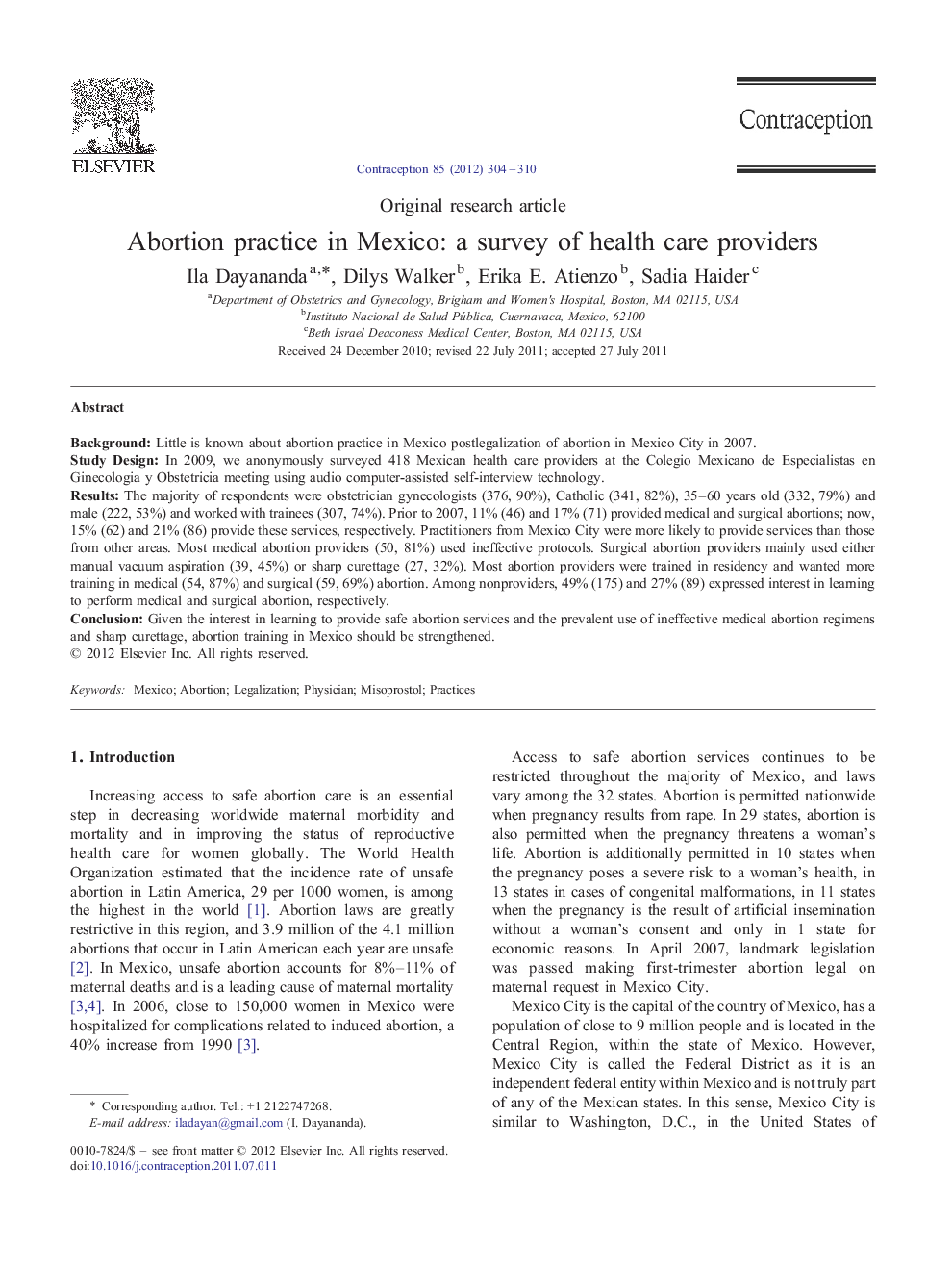| Article ID | Journal | Published Year | Pages | File Type |
|---|---|---|---|---|
| 3914178 | Contraception | 2012 | 7 Pages |
BackgroundLittle is known about abortion practice in Mexico postlegalization of abortion in Mexico City in 2007.Study DesignIn 2009, we anonymously surveyed 418 Mexican health care providers at the Colegio Mexicano de Especialistas en Ginecologia y Obstetricia meeting using audio computer-assisted self-interview technology.ResultsThe majority of respondents were obstetrician gynecologists (376, 90%), Catholic (341, 82%), 35–60 years old (332, 79%) and male (222, 53%) and worked with trainees (307, 74%). Prior to 2007, 11% (46) and 17% (71) provided medical and surgical abortions; now, 15% (62) and 21% (86) provide these services, respectively. Practitioners from Mexico City were more likely to provide services than those from other areas. Most medical abortion providers (50, 81%) used ineffective protocols. Surgical abortion providers mainly used either manual vacuum aspiration (39, 45%) or sharp curettage (27, 32%). Most abortion providers were trained in residency and wanted more training in medical (54, 87%) and surgical (59, 69%) abortion. Among nonproviders, 49% (175) and 27% (89) expressed interest in learning to perform medical and surgical abortion, respectively.ConclusionGiven the interest in learning to provide safe abortion services and the prevalent use of ineffective medical abortion regimens and sharp curettage, abortion training in Mexico should be strengthened.
